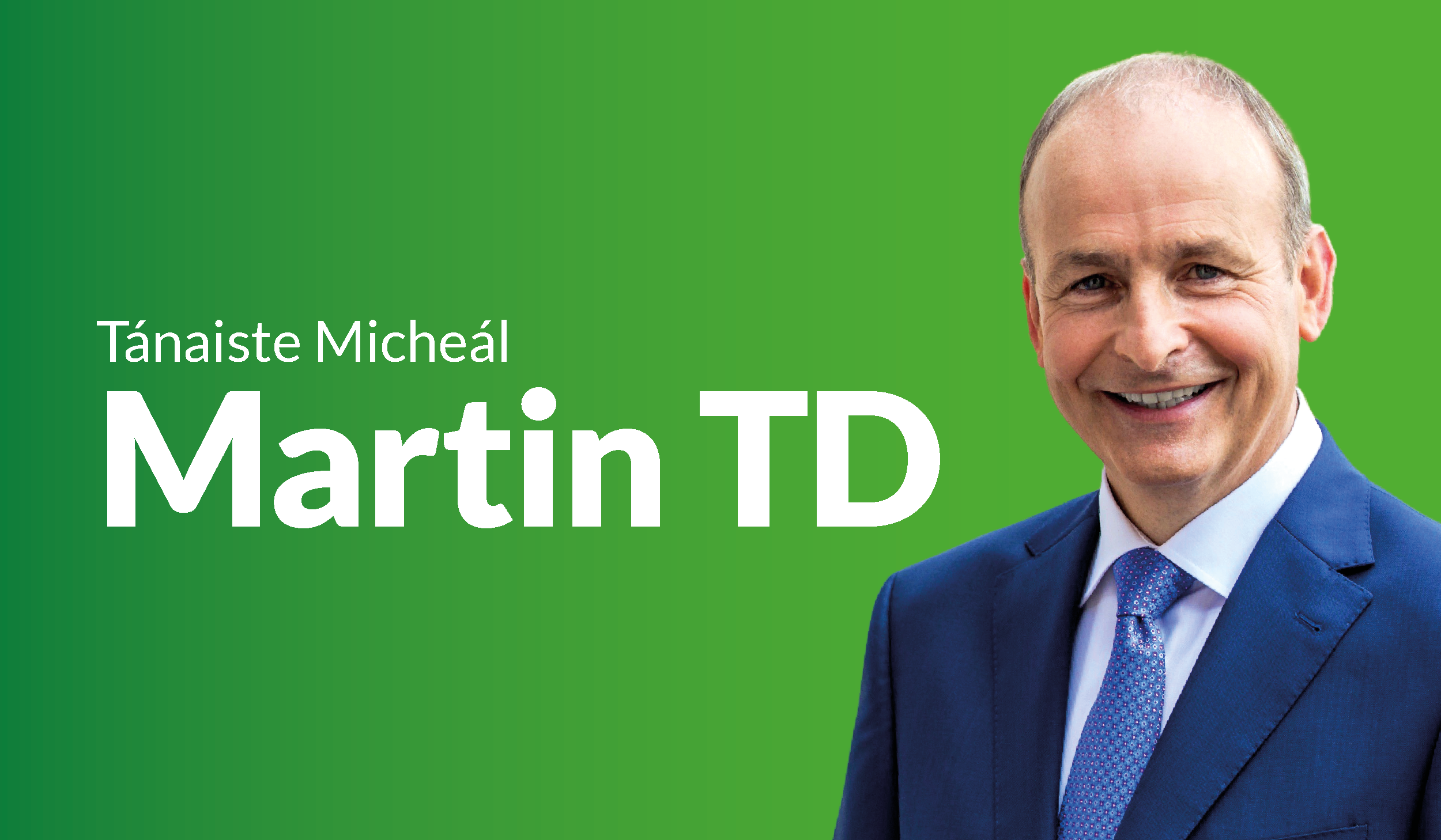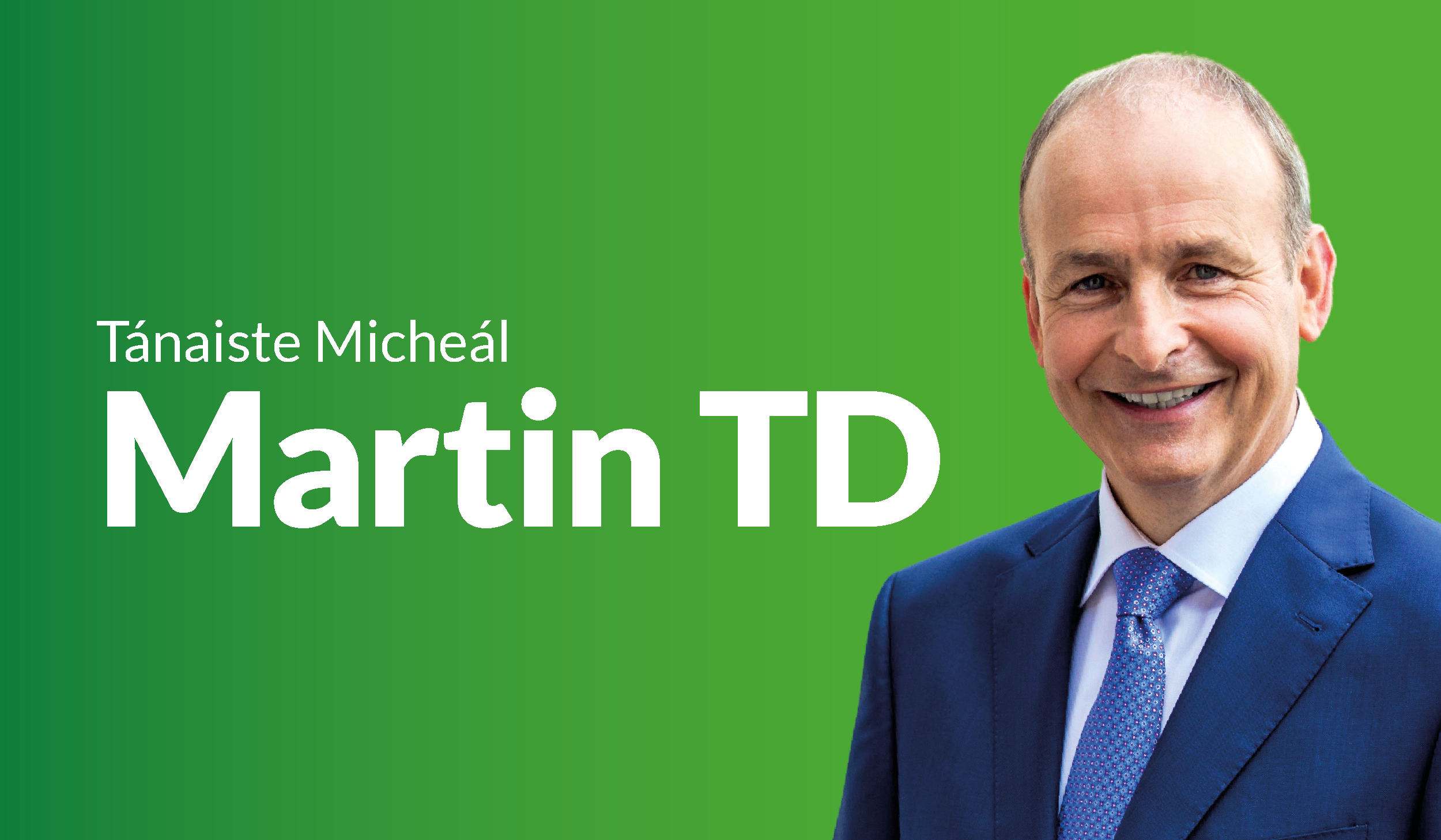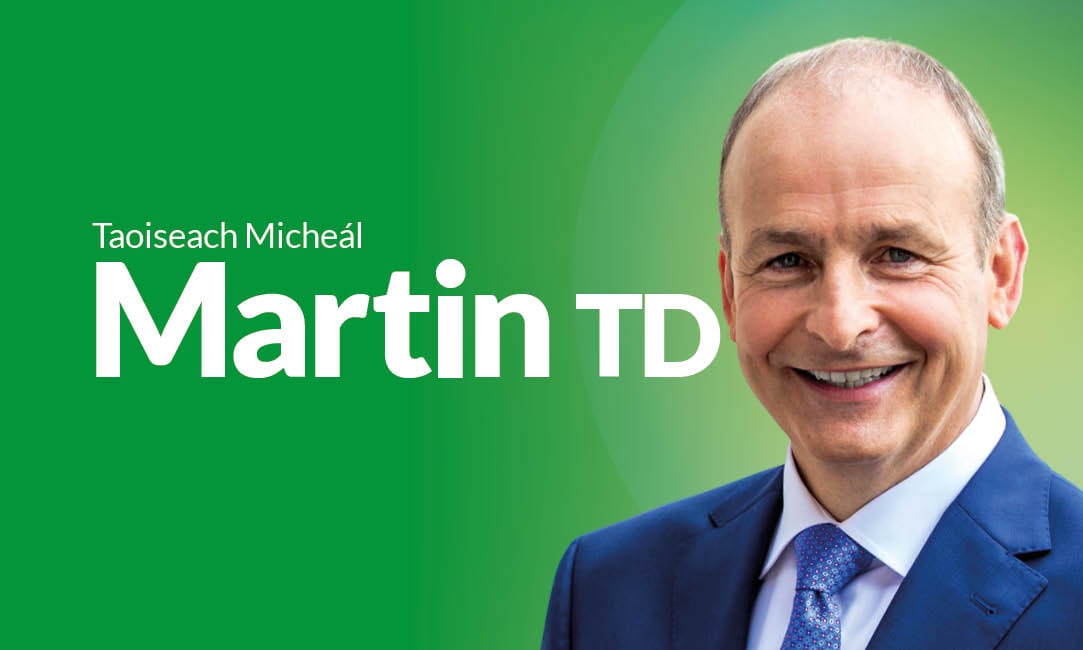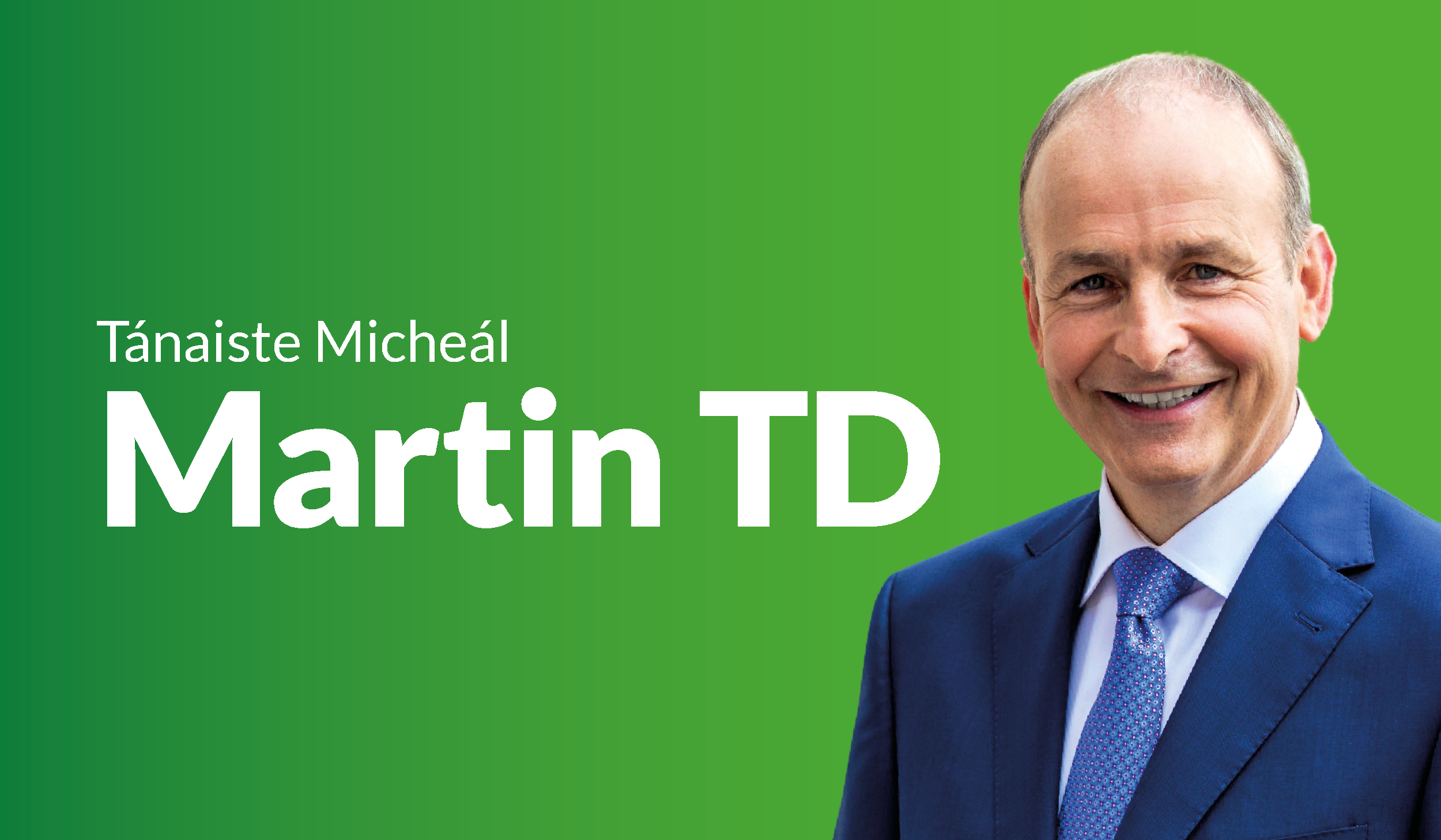Tánaiste Micheál Martin - Fianna Fáil Commemoration of the Peace Process and the Good Friday Agreement
Published on: 07 April 2023
The Good Friday Agreement was a triumph for constitutional democracy on our island. It helped end one of Europe’s most deadly and enduring campaigns of violence and it inspired people throughout the world with its message of hope and endurance.
The Agreement, and the key steps which both preceded and followed it, involved many great figures who were determined that the people’s faith in democracy would prevail. And it involved the steady support of the Irish people.
It is a moment in our national story which belongs to everyone.
As part of remembering the Agreement it is right that we as a party gather to acknowledge our own leaders and major figures without whom none of the progress would have been possible – and it is right that we gather to again assert our believe that building a permanent peace and prosperity shared by all on this island remains the most noble goal of our time.
I would like to thank all those who have made this evening possible and those who gave their time to the preparation of the video which we watched earlier. The video gave a very good sense of the historic days of the Downing Street Agreement, the ceasefires, the negotiations and the challenges of the years since 1998. While it is little over twelve minutes long, hours of longer interviews have been conducted. In order to make their valuable contents available, those videos will be placed in the Party's archives held here in the UCD Archives where they will be accessible to historians and others. We will also see how we might make these available in some format to party members.
Our focus has been on the political process because it is important to stress the essential and foundational role of political leadership by democratic politicians at every stage of the process – a lesson which remains as important today as it has ever been.
It is hard not to reflect on just how long the road to the Agreement was. A recent academic history of Fianna Fáil shows that as long ago as the 1940s, our founding leaders Eamon de Valera and Seán Lemass agreed on the need to find a way of building bridges between jurisdictions. They believed that open and constructive relations were the first foundation for any progress. Unfortunately their early ideas ran into many difficulties, especially the reluctance of many to move beyond comfortable rhetoric. Even such enormous figures in the political history of our country faced serious obstacles when trying to open up new routes to reconciliation.
However these ideas were eventually resurrected by Lemass in his dramatic series of moves to reach out to Terrance O’Neill in Stormont and Harold Wilson in London.
From Lemass’ time up to today, every piece of progress on Northern Ireland has involved close and effective cooperation between Dublin and London.
It is this theme which is unmistakable in the historic breakthroughs of recent years.
During the terrible and unending violence of the 1970s and 1980s it was so often possible to lose hope, but everyone on our island owes a deep debt of gratitude to those who never gave up, who never lost their faith.
Of course we particularly remember John Hume, a truly exceptional man who always believed that we could find a way forward – that truth and peace would prevail.
In the very earliest days of what became the peace process, John Hume used his close relationship with our leaders to open tentative channels of communications. When Charles Haughey instructed Martin Mansergh and others to explore these links it was something which would have caused uproar if it had been known publicly.
The relationship between Albert Reynolds and John Major was an essential part of the wonderful achievement of the Downing Street Declaration. This is often overlooked but it was almost revolutionary at the time. For the first time ever, both governments set out explicitly how they were prepared to find a new blueprint for the future if peace could be achieved.
The Declaration swept aside the empty excuses of the two extremes to avoid democratic politics. The principle had been established that the will of the people would prevail and this has never changed.
The period between the Declaration and the Agreement seemed like an eternity at the time.
The ceasefires, their collapse and then their restoration as part of a final push dominated the news every day – as hope and expectation seemed stuck in a form of limbo.
It is unquestionable that the coming into office of the Labour government of Tony Blair and the Fianna Fáil-led government of Bertie Ahern was an essential catalyst for reaching a comprehensive agreement. Their close working relationship, defined by trust and a shared strategy, overcame hurdle after hurdle.
They never broke confidences. They never tried to dominate news cycles. They were willing to be brave and had the full support of their parties in taking genuine risks – particularly in dealing with people and issues which had caused enormous trauma for so long.
In cabinet we understood that, no matter what issues were facing us, peace was our absolute and unquestioned priority.
For every one of us, it was a privilege to serve in those days, and to support the truly remarkable work of Taoiseach Bertie Ahern on behalf of our country.
With the eyes of the world on him, and working hand in hand with two major international leaders in Tony Blair and Bill Clinton, he showed a skill and determination which helped deliver genuinely historic progress. This continued right up to the dramatic and once-unthinkable deal which brought Ian Paisley and his party to fully participate in the Executive created by the Agreement.
The support of the government of the United States was essential in first helping us to stand against the violence and then negotiating peace. From President Carter onwards, and with the leadership of huge figures in Congress, there was no equivocation – democracy and peace must prevail. And when President Clinton came to office, his deep and ongoing involvement was absolutely critical.
The overwhelming results of the referendums was a final and conclusive demonstration of the will of the people of this island that violence must have no place – that constitutional means must be the only way that we achieve political objectives.
As we see images of the negotiations it reminds us of those who are no longer with us but who were extremely important.
To anyone who met him, the Loyalist leader David Ervine was one of the most passionate of all those involved because he understood how terrible so many of the crimes had been and how he was determined that others would not follow him.
I remember well working with Martin McGuinness soon after the Executive was established and he was appointed as Minister for Education. When we met in his new office in the middle of unionist East Belfast, there was a shared determination that education could lead the way in showing reconciliation in action.
David Trimble will forever have an honoured place in Irish history not just because of the risks he took, but because his leadership and resilience came to the fore just when it was needed the most.
And of course, for us in Fianna Fáil, we particularly miss our great friends, two giants of Irish history, John Hume and Seamus Mallon.
The first heroes of any peace process are those who always stood against violence, who always preached reconciliation even in the face of the worst provocation.
John and Seamus endured the abuse of both extremes for many years, but they never, not even for one moment, lost their belief that peaceful coexistence and cooperation must prevail. There’s was the spirit of true republicanism.
John Hume’s always eloquent words were an inspiration and reassurance through those years – and they remain so today.
It is a fitting tribute to him that his portrait today hangs in Westminster and sculptures of him have places of honour in Leinster House, the United States Congress and the European Parliament.
John remains the only member of the European Parliament to have been awarded a Nobel Prize for Peace – and this is a reminder of how important the European context always has been for peace and reconciliation.
Our partners in the European Union have been steadfast in their support for peace at every stage – and when the Agreement was reached, they put in place the first ever targeted support programme for peace in the history of the Union.
Our joint membership of the Union is to be found in the very DNA of the Agreement, so the reality of Brexit is that it turned a focus for cooperation into a cause of ongoing dispute.
Even during the terrible days of the pandemic, we have done everything possible to limit the damage of Brexit to our island. I think we should all acknowledge the steadfast support which the Union has shown for us and the creative and flexible approach they have taken in addressing real concerns about trading relations.
I want to acknowledge our own MEPs, Billy Kelleher and Barry Andrews for their work in recent years maintaining support withing the European Parliament for peace in Ireland. It is especially fitting to have Barry in this role, given the service of his father David as Minister for Foreign Affairs during the negotiations. David’s unflappable good humour was one of the many highlights of those days for me.
And of course the Andrews family is a very good example of how true Irish republicanism has always been willing to evolve and seek to serve all who share this island. A hundred years ago, David’s father Todd served as a senior aid in the final days of the civil war. Once that terrible conflict was over he dedicated himself to the economic development of Ireland – helping to create opportunities which have benefitted countless thousands up to this day.
Of course 1993, 1998 and 2007 didn’t bring an end to the need for tough negotiations. I was privileged to be involved in the negotiations which established a new consensus on policing and saw first-hand once again how the British and Irish governments, working together in a spirit of trust, could keep overcoming new hurdles.
What people often forget about the work of Brian Cowen and Gordon Brown is just how much of their time they were willing to devote to Northern Ireland, even in the face of a dramatic world recession. They also understood that Northern Ireland needed a new economic beginning – and set out ambitious investment plans.
While our focus tonight is to celebrate how much was achieved, it is our duty to understand that the work of building peace is not over. It falls to us to fulfil to build a genuine reconciliation and progress for all on our island.
We need political institutions to return to working on behalf of the people.
We need to work together to deliver prosperity for communities which continue to see poverty levels well ahead of the rest of these islands and which have never recovered from damage caused by three decades of violence.
We need to return to the spirit of genuine cooperation and push to one side a heightened partisanship which has delivered nothing positive in the last decade.
For our part, Fianna Fáil remains as committed as ever to the spirit of the Agreement. We will do everything possible to help return effective government to Belfast. We will continue to work to build on the new spirit of cooperation with London which helped so much late last year and in recent months to reach agreement on critical issues.
Most of all we will also move forward with the investment and dialogue which is at the core of the Shared Island Initiative.
If we want to build bridges on our island, if we want to secure prosperity and opportunity for all communities, then we must commit ourselves finding new ways to understand each other and to create new opportunities.
The first ever sustained programme of research into all areas of cross-border connections and also differences is well under way. It is challenging many assumptions we have had about services and barriers to development on both sides of the border. It is developing a new agenda for cooperation where people will be able to see the direct benefit for them in terms of better services and economic development.
Education remains the foundation for lasting progress, so for the first time ever we are examining in depth what we can learn from schools on both sides of the border – and how we can tackle disadvantage wherever it is found.
Over 3,500 people and organisations have so far participated in the Shared Island Dialogue – showing a real hunger for a new way forward.
And we are also moving forward with the largest ever programme of investment in new connections across the border – everything from improving transport links to delivering on the urgent challenge of climate change.
For republicans the purpose of politics is to serve all of the people not just your own. It is this spirit which has constantly motivated Fianna Fáil in our work for peace – and it remains as strong today as it has ever been.
As we look back at the Agreement and the entire process of securing peace, we can celebrate a victory for democracy which is still honoured throughout the world. A victory for politics and leadership. It is a reminder of how far we have come and that, no matter what obstacles we face, we can still push forward to secure the full potential for peace and reconciliation on our island.



